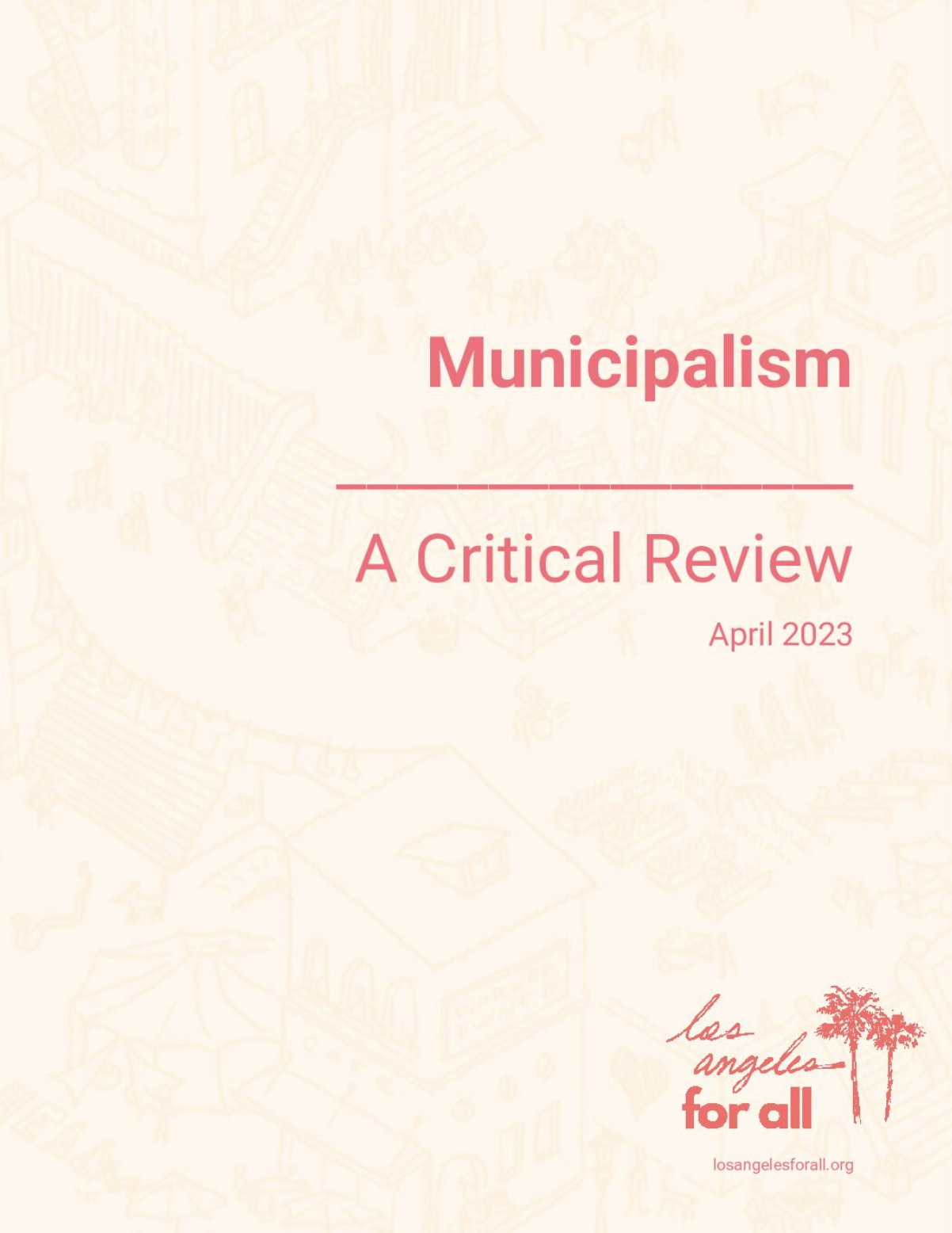
Municipalism: A Critical Review
It was a generative time working with Haley Roeser, Dani Knoll, and Eleanor Finley on this critical assessment on the municipalist moment, from Los Angeles to Vermont to Rojava.
Here is the abstract:
In recent years, a growing number of popular movements demanding the “right to the city” have come to describe themselves as municipalist or democratic confederalist, lineages that are closely related to 20th century philosopher Murray Bookchin’s ideas of libertarian municipalism or communalism.
Municipalists, as their name suggests, organize at the unit of the municipality. That is to say, they organize “locally,” but with the additional goal of bringing about governance by popular assembly and by confederating with other assemblies.
Although there is a diversity of positions within municipalism, we can generally say that it seeks to intensify decentralization over centralization; the networked over the isolated; the diverse over the monolithic.
This critical review focuses on movements and organizations that today call themselves municipalist, or have been referred to as such in the literature on municipalism. We describe some of its important thinkers, movements, themes, and concepts.
We reflect on some of the movement’s trends and patterns to see where it might be headed. We then share some of their debates and contradictions, gaps, and weaknesses.



